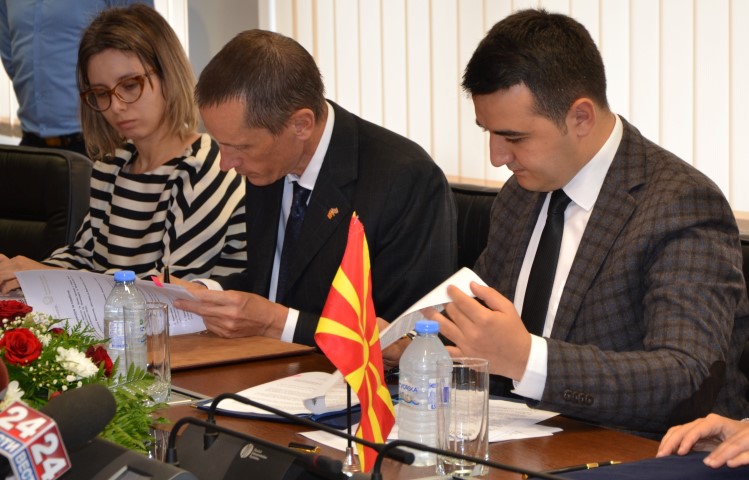6th September 2016 Skopje, North Macedonia
Improving quality of justice in Macedonia

I spent this morning in conversation with Macedonia’s Justice Minister Valdet Xhaferi and the Centre for Legal Research and Analysis (CLRA), a Skopje-based civil society organisation. The topic was how we can strengthen the judicial system in Macedonia. And our conversation formed part of the launch of a programme of activities led by the CLRA over the next 18 months to improve the quality of justice.
The judicial system and access to justice has long been a hot topic in Macedonia. One key lesson of the current political crisis, reflected in the Urgent Reform Priorities, is the need for a better judicial system for all. Everyone in the country has an interest in this. A stronger judicial system is central to a strong democracy, a fair society and a thriving economy. The public needs a judicial system they can trust to ensure accountability when laws are broken. They need to know that the judicial system is working in the interest of all citizens. That is key for the development of any democracy. It is also the basis of a strong economy. Businesses, small and large, local or foreign, need a judicial system they can trust to deliver fair and independent decisions.
In short, a stronger judicial system means a stronger Macedonia. And that is why we are working with you on this. I hope that with this new programme of collaboration between the British Embassy, the CLRA and the Macedonian Justice Ministry, we will help to achieve that.
This programme will deliver:
- A matrix for monitoring the judicial system. Macedonia has undergone serious and rapid judicial reforms. With this matrix, we shall be able to measure the progress of judicial reform in a comprehensive way. And, because it will involve the justice community, the legal community and the public, it will also be inclusive.
- Guidelines for judges to use in court. This should strengthen their capacity and make different court decisions more uniform and consistent.
- Increased awareness about the economic value of justice among the judiciary and the public. Our programme will give people a better understanding of the costs of court procedures, helping them to make informed decisions about whether to go to court or to seek other less costly alternative dispute resolution mechanisms, such as mediation.
In two decades of the United Kingdom’s partnership with Macedonia in its reform programme, we have collaborated on a wide range of areas of reform. But the judiciary, human rights and democracy have always been at the core of the work that we do. This project will add to that. And our doors remain open for further work in these important fields.

The post has really peaks my interest. I’m going to bookmark
your site and keep checking for new information.
It’s challenging to locate well informed individuals on this issue, but you sound like you
realize what you’re talking about! Thanks